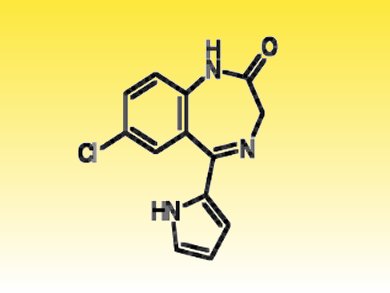Core binding factor (CBF) leukemias are hematological malignancies (types of cancer that affect blood, bone marrow, and lymph nodes) characterized by chromosomal aberrations involving the transcriptional factor CBF. Its interactions with another transcriptional factor, RUNX1, is crucial for the pathogenesis of the disease.
Lea Cunningham, National Human Genome Research Institute, Bethesda, USA, and colleagues demonstrated that RUNX1-CBFβ interactions can be partially destroyed by the benzodiazepine Ro5-3335. The scientists showed that this compound binds both transcriptional factors and inhibits their activity. Consequently, it killed human leukemic cell lines in vitro and it reduced the development of a CBFβ leukemia in a mouse model.
Ro5-3335 might, therefore, be a promising therapeutic strategy against leukemic disease.
- Identification of benzodiazepine Ro5-3335 as an inhibitor of CBF leukemia through quantitative high throughput screen against RUNX1-CBFβ interaction,
L. Cunningham, S. Finckbeiner, R. H. Hyde, N. Southall, J. Marugan, V. R. Yedavalli, S. J. Dehdashti, W. C. Reinhold, L. Alemu, L. Zhao, J. R. Yeh, R. Sood, Y. Pommier, C. P. Austin, K. T. Jeang, W. Zheng, P. Liu,
Proc. Natl. Acad. Sci. 2012, 109 (36), 14592-14597.
DOI:10.1073/pnas.1200037109




